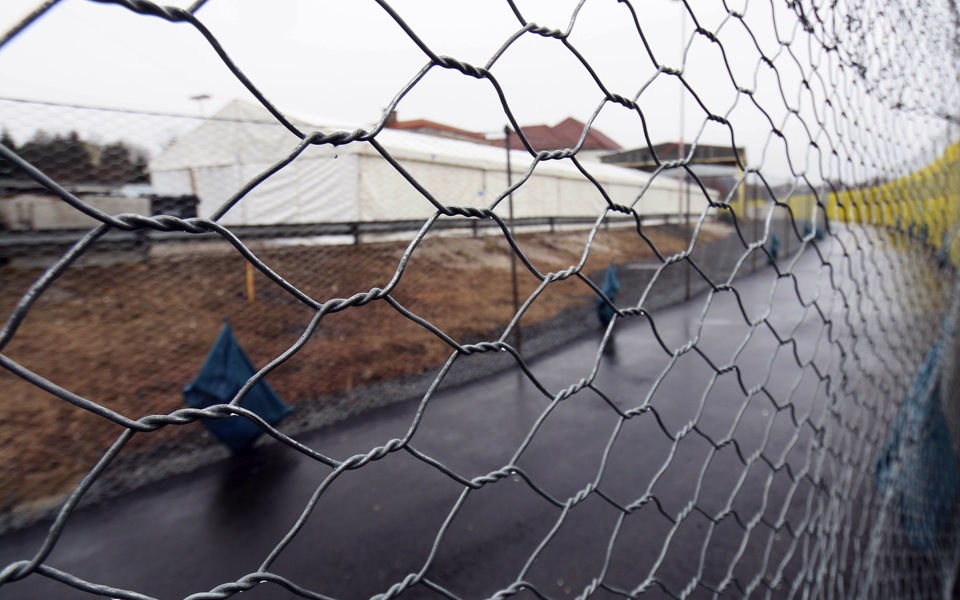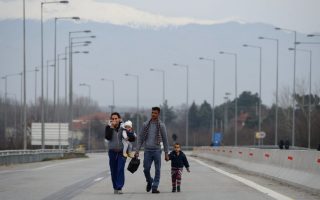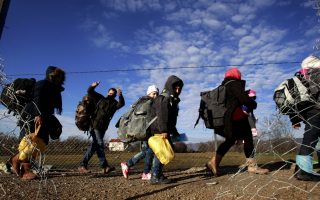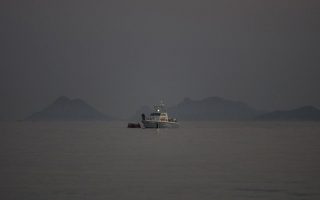Austria snubs EU with migrant cap launch as rift widens

Austria on Friday introduced a new daily cap on asylum seekers which could trigger a domino effect of border clampdowns on the Balkan migrant trail from Greece up to northern Europe.
The move sparked anger from the European Union which hopes on sealing a pact with Turkey to stem the migration crisis at a special summit in early March.
A maximum of 80 migrants per day are now being allowed to claim asylum in Austria. Vienna is also limiting the daily number of people transiting through to seek asylum in a neighbouring state to 3,200.
Brussels on Thursday slammed the "unilateral actions" as "incompatible with European Union law".
Instead EU leaders, spearheaded by Germany, are supporting a deal with Ankara under which Turkey would close its borders and then fly refugees to Europe for resettlement under a quota plan.
"We agreed that our joint action plan with Turkey remains a priority and we must do all we can to succeed," European Council President Donald Tusk said early Friday at a two-day EU summit.
Big rifts have opened up in the 28-member bloc as the continent grapples with its biggest migration crisis since World War II.
Pressure to enforce the EU plan is growing as thousands of migrants and refugees are still crossing the Aegean daily from Turkey after more than one million braved the perilous journey last year.
Most are refugees fleeing war and violence in Syria, Afghanistan and Iraq.
However, the so-called Visegrad Four (V4) – Poland, the Czech Republic, Slovakia and Hungary – have already rejected the EU resettlement plan.
They want Former Yugoslav Republic Macedonia (FYROM) and Bulgaria to seal off their frontier with Greece, effectively excluding Athens from Europe's passport-free Schengen zone and leaving thousands of people stranded.
Austria, which has joined the V4 in their call for tighter Schengen border controls, warned Friday it could lower its daily cap even further.
"We need to put the brakes on," Interior Minister Johanna Mikl-Leitner said.
Once the limits at Austria's main border crossing with Slovenia have been reached, "the borders will be closed," police spokesman Fritz Grundnig told AFP on Friday morning.
However, "not a single migrant has arrived since yesterday (afternoon) and we don't expect any to arrive today because of the bad weather," he added.
The daily limit on asylum claims is in line with Austria's announcement last month that it would only take in 37,500 asylum seekers this year – sharply down from the 90,000 it accepted in 2015, making it one of the bloc's highest recipients on a per-basis capita.
Like the V4 bloc, Vienna wants to see the number of asylum seekers arriving from Turkey to drop from as many as 2,000 a day to just a few dozens.
Last year we had "more asylum requests than Italy and much more than France. And everyone who looked at a map knows that these two countries are much bigger than Austria and have more inhabitants as well," Austrian Chancellor Werner Faymann said Thursday in Brussels.
Germany – which took in more than one million asylum sekers in 2015 – acknowledged that the EU "must see quickly if measures work" under a plan, in which Turkey agreed late last year to cut migrant flows in exchange for three billion euros in aid.
A meeting of the leaders of 11 EU countries with Turkey had been planned before the two-EU summit on Thursday, but was cancelled after Turkey's premier Ahmet Davutoglu pulled out following a bomb attack in Ankara.
A new meeting is now due to take place in early March.
Separately the police chiefs of Austria and four other countries on the Balkan migrant route announced an agreement Thursday for a joint refugee registration point at the Greek-FYROM border.
[AFP]





